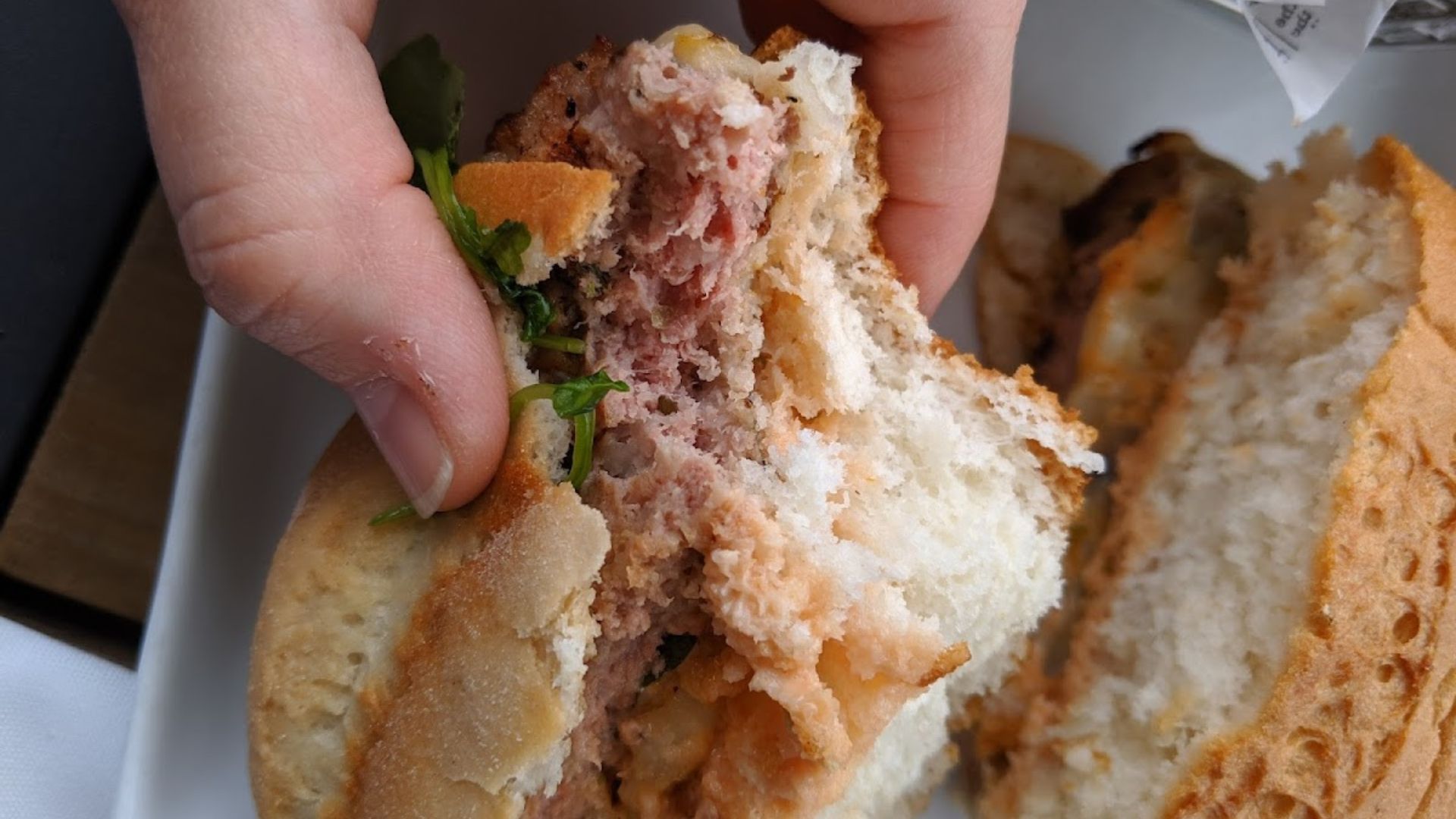As people become more health conscious, they seek alternative protein sources that are leaner and lower in fat. One such option is turkey meat. It’s an excellent source of protein, lower in fat than beef, and has several health benefits.
However, when cooking turkey burgers, many people wonder whether it’s safe to eat them if they are pink in the middle. This article will answer this question and provide some helpful tips on safe turkey burger consumption.
What Causes Turkey Meat to Turn Pink?
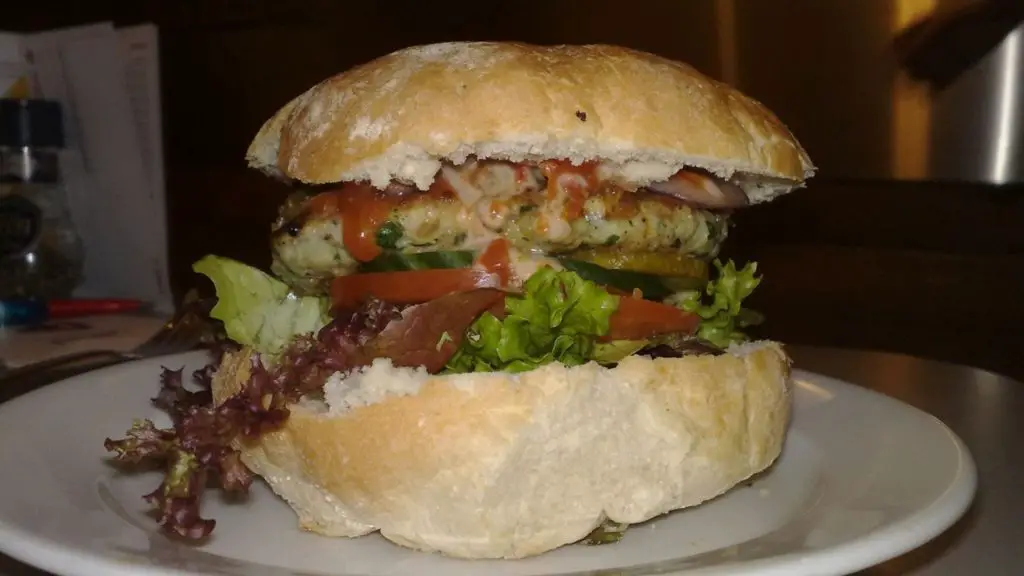
Turkey meat can be pink in the middle for several reasons. One reason is that it’s the natural color of turkey meat. Turkey meat can have a pink or reddish hue, even when fully cooked. This is because turkey meat contains myoglobin, a protein that gives meat its color.
Myoglobin is more heat-stable than hemoglobin, the protein that gives blood its color. This means that even when turkey meat is cooked, it can still retain a pink or reddish hue.
Another reason turkey meat can be pink is that it's from nitrite-free turkey products. Nitrites are used in many processed types of meat to preserve color, inhibit bacterial growth, and add flavor.
However, some people prefer to avoid nitrites, and now many nitrite-free turkey products are available. These products often have a pinkish hue, even when fully cooked.
Lastly, cooked turkey meat can be pink if cooked to the correct temperature but retains some original colors. However, this is rare; most of the time, turkey meat that’s pink in the middle is undercooked.
Risks of Eating Undercooked Turkey

Undercooked turkey burgers can pose health risks. Raw or undercooked turkey can contain harmful bacteria like salmonella or campylobacter. These bacteria can cause food poisoning, leading to symptoms like diarrhea, vomiting, fever, and stomach cramps. For high-risk individuals like pregnant women, young children, the elderly, or those with weakened immune systems, the symptoms can be severe, leading to hospitalization or even death.
How to Cook Turkey Burgers to the Correct Temperature
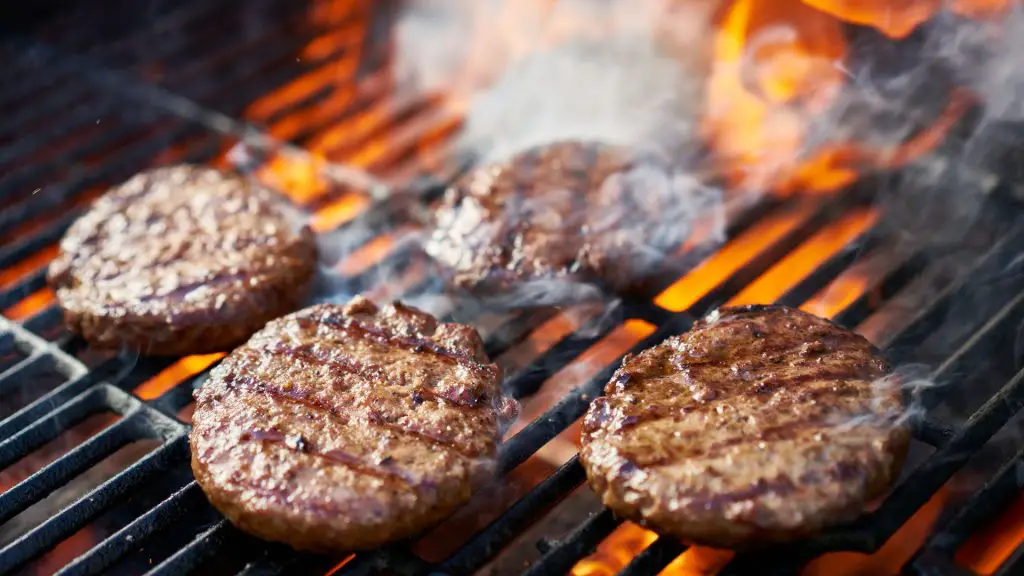
To ensure that turkey burgers are safe, they should be cooked to the correct temperature. The safe cooking temperature for turkey burgers is 165°F (74°C). To measure the temperature, a meat thermometer should be used. Insert the thermometer into the thickest part of the burger, ensuring not to touch the bone or the pan’s surface.
Cooking time and temperature guidelines can vary based on the cooking method used. For instance, turkey burgers cooked on a grill can take longer than those cooked on a stovetop. Additionally, stuffed turkey burgers with a higher fat content may take longer to cook. Always refer to cooking instructions and temperature guidelines to ensure your turkey burgers are cooked safely.
Tips for Safe Handling of Turkey Burgers
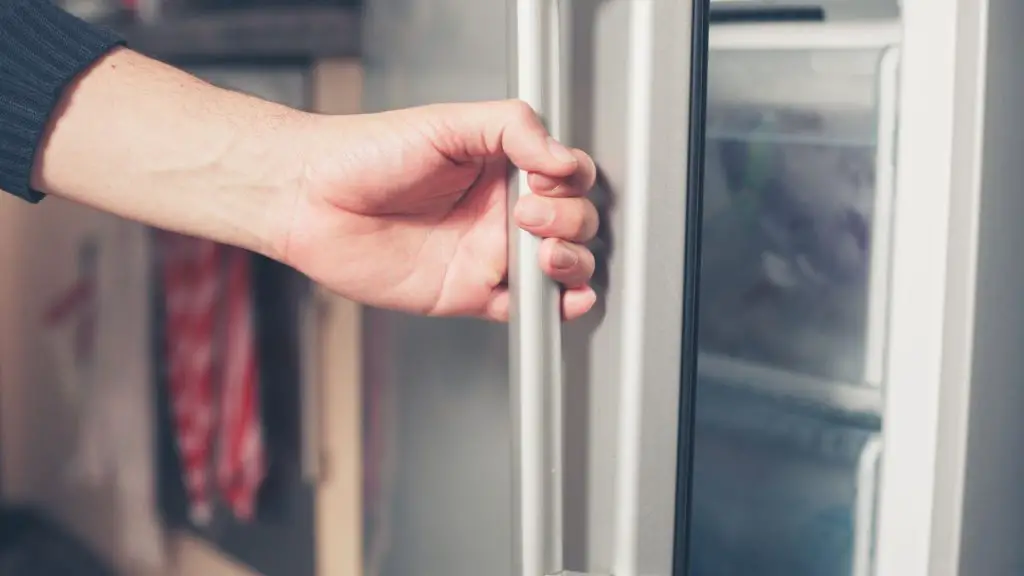
Proper handling of turkey burgers can help prevent cross-contamination and ensure they are safe to eat. Here are some tips for the safe handling of turkey burgers:
- Proper Storage: Raw turkey burgers should be stored in the refrigerator or freezer. Use them within one or two days of purchase, or freeze them for more extended storage.
- Thawing Turkey Burgers: When thawing frozen turkey burgers, it’s essential to do so safely. Always thaw them in the refrigerator or use the defrost function on your microwave. Never thaw turkey burgers at room temperature, which can lead to bacterial growth.
- Cross-Contamination Prevention: Cross-contamination can occur when bacteria from raw turkeys come into contact with other foods. To prevent cross-contamination, always wash your hands before and after handling raw turkey, use separate cutting boards for raw turkey, and avoid using the same utensils or surfaces for raw turkey and other foods.
How To Cook a Turkey Burgers to a Certain Doneness
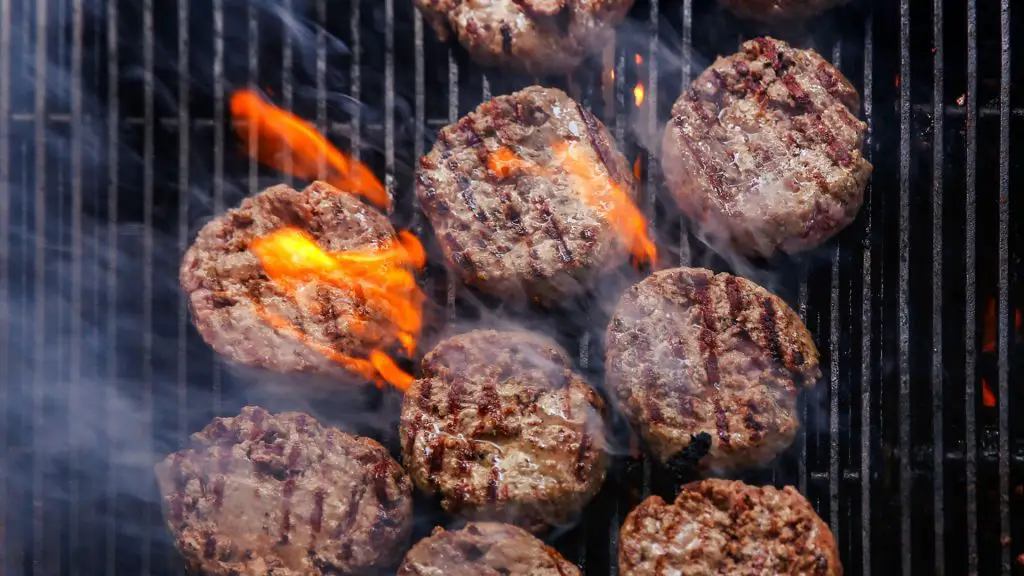
Cooking a turkey burger to a specific doneness can be a bit of a challenge, especially if you are looking to achieve that perfect medium-rare turkey burger.
However, with the right cooking techniques and a bit of patience, it is possible to cook turkey burgers that are juicy, flavorful, and cooked to your desired level of doneness. In this guide, we will take you through the steps required to cook a medium-rare turkey burger and provide you with a cooking table that outlines the cooking times and temperatures needed to achieve different levels of doneness.
| Doneness Level | Temperature Range | Description | Cooking Guidelines |
|---|---|---|---|
| Rare | 120°F – 125°F | The meat is red and juicy in the center | It is not recommended to cook turkey burgers to rare because it poses a higher risk of foodborne illness. |
| Medium Rare | 130°F – 135°F | The center is pink and slightly warm | Cook for 4-5 minutes on each side on medium-high heat. |
| Medium | 140°F – 145°F | The center is pink and warm | Cook for 5-6 minutes on each side on medium-high heat. |
| Medium Well | 150°F – 155°F | The center is slightly pink and mostly brown | Cook for 6-7 minutes on each side on medium-high heat. |
| Well Done | 160°F and above | The center is brown and fully cooked through | Cook for 8-10 minutes on each side on medium-high heat. |
Conclusion

In conclusion, eating a pink turkey burger is safe as long as it’s cooked to the correct temperature. Turkey meat can naturally have a pinkish hue, but it’s important to ensure that the burger is cooked through to prevent foodborne illness. Always use a meat thermometer to check the temperature of your turkey burger and follow cooking time and temperature guidelines. Additionally, safe handling practices like proper storage, thawing, and preventing cross-contamination are essential for safe consumption.
Regarding turkey burgers, it’s better to be safe than sorry. Undercooked turkey burgers can pose health risks, and it’s essential to follow safe handling and cooking practices to prevent foodborne illness. With the right techniques and knowledge, you can enjoy a delicious and safe turkey burger cooked to perfection.
Remember, always prioritize food safety when cooking and handling meat products. Stay informed, use proper cooking techniques, and enjoy your meals with peace of mind.
